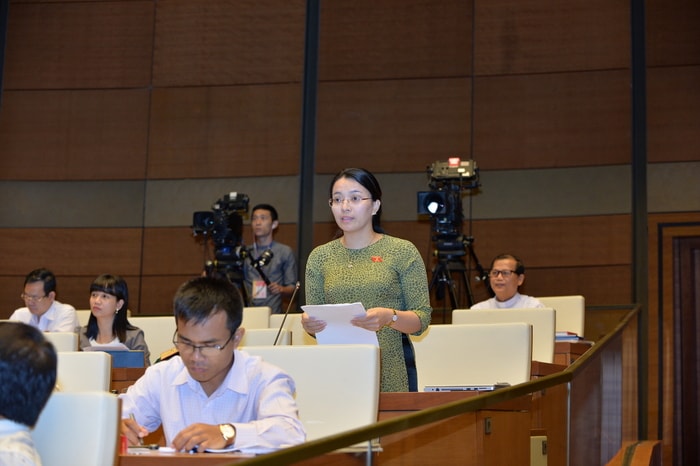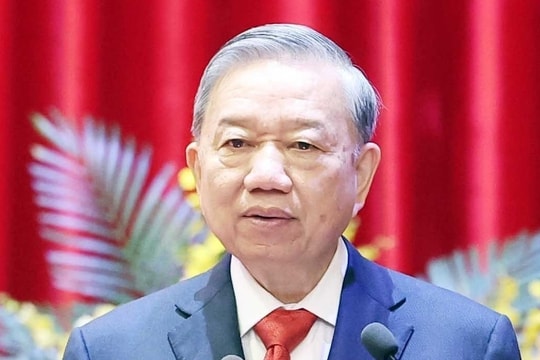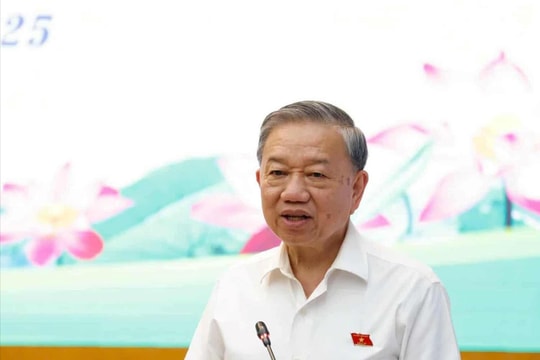Nghe An National Assembly Delegate: Assigning the State Bank to regulate bad debt is not satisfactory
(Baonghean.vn) - Ms. Hoang Thi Thu Trang of the National Assembly delegation of Nghe An province said that the National Assembly's assignment of the State Bank to regulate bad debt while the banking industry enjoys this special mechanism is not satisfactory.
On the morning of June 7, the National Assembly discussed in the hall the draft Resolution on handling bad debts of credit institutions and the draft Law on amending and supplementing a number of articles of the Law on Credit Institutions. |
Speaking at the meeting, delegate Hoang Thi Thu Trang expressed her agreement to issue a special mechanism to support the handling of bad debts associated with the handling of collateral assets. At the same time, delegate Trang added some additional comments to make the resolution more feasible.
Delegates from Nghe An province pointed out that some contents of the draft resolution have not been amended or supplemented compared to the Government's explanatory report on May 22, including key contents such as not adding the principle of not using the budget to handle bad debts, not adding the regulation of only exercising the right to seize assets when there is no dispute, etc. Delegates requested the State Bank to seriously advise on supplementation and editing according to the Government's report to the National Assembly.
 |
| Delegate Hoang Thi Thu Trang speaks at the National Assembly hall on the morning of June 7. Photo: Thanh Loan |
Besides, regarding the concept of bad debt, according to delegate Thu Trang, the National Assembly's assignment to the State Bank to regulate bad debt while the banking industry is the industry that benefits from this special mechanism is not satisfactory.
Regarding the right to seize assets, regarding the conditions for seizing assets according to the Government's report, it will add regulations on credit institutions seizing collateral when there is no dispute. Ms. Trang said: "It is necessary to clarify which dispute this is: a dispute about the right to deliver collateral between the credit institution and the borrower or a dispute about the right to use and own the asset between the borrower and a third party. This is the key to the right to seize in this draft resolution."
Regarding the mechanism for recovering and handling assets, the head of the Civil Judgment Enforcement Department of Nghe An province stated that in reality, handling secured assets to recover debt is an extremely difficult and complicated process due to the fierce opposition of asset owners and related people.
“The practice of civil judgment enforcement shows that there are cases of attacks on law enforcement officers, or self-immolation, acid throwing, etc. To handle these assets, the enforcement agency must mobilize a lot of forces. So how should credit institutions handle the above problem? Do they have to directly seize and handle the assets or are they allowed to hire other forces to protect and seize the assets? I think it is necessary to have a clear and appropriate mechanism to handle it, especially in cases where foreign bank branches seize assets of Vietnamese citizens, otherwise it is difficult to predict serious consequences for social safety and security,” Ms. Hoang Thi Thu Trang analyzed.
Regarding the mechanism for resolving complaints and disputes when seizing assets, the practice of enforcement shows that handling secured assets, especially real estate, is the type of work with the most complaints and denunciations, with some intense and complicated cases lasting for decades.
Ms. Trang wondered: “Complaints and denunciations are the rights of citizens, but credit institutions are also a party to civil contracts and do not have the authority to resolve them. What should we do then? If we sue in court, it will create a new round of litigation. Then the handling of bad debt will fall into a vicious circle and the purpose of the resolution will not be achieved.”
In addition, delegates from Nghe An delegation also contributed additional comments on the content of property seizure of the party subject to enforcement, regulations on tax exemption, civil enforcement fees, etc.
PV-CTV Group
| RELATED NEWS |
|---|





.jpg)


